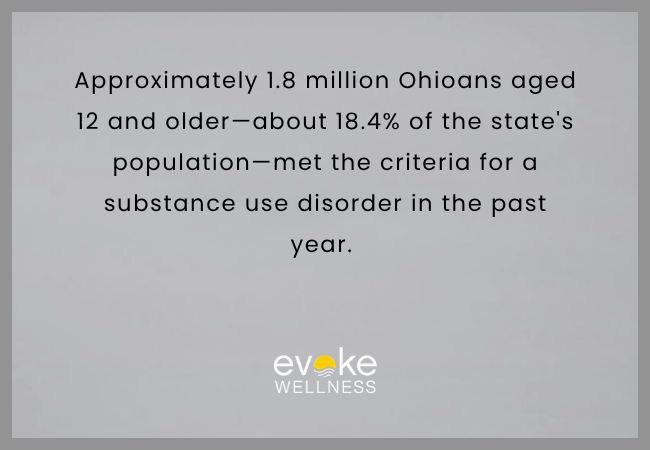Taking the step to detox from drugs or alcohol is often the first courageous move on the path to recovery. However, detoxification can be a challenging and dangerous process if not approached with care. Opting for a supervised detox, particularly at a facility like Evoke Wellness at Hilliard, offers critical support that ensures the individual’s safety and well-being. Understanding the detox process and why professional supervision matters can help individuals make informed decisions about their recovery journey.
Detoxification: A Critical Step in Recovery
Detoxification is the first and essential step toward breaking free from addiction. During this process, the body works to rid itself of the substances that it has become dependent on. For someone who has been using drugs or alcohol regularly, this step can be fraught with withdrawal symptoms. These symptoms can range from mild discomfort to severe physical and psychological distress, and without the right support, they can even be life-threatening.
The detox process goes beyond simply stopping drug or alcohol use; it’s about managing the body’s response to the absence of these substances. The best way to ensure that this process goes smoothly and safely is by opting for a Medical Detox Center in Ohio, where professionals can help guide you through each stage of detoxification.
Why You Need Supervision During Detox
Detoxing without medical supervision can be dangerous. Withdrawal symptoms from substances like alcohol, opioids, or benzodiazepines can escalate very quickly, leading to serious complications such as seizures, heart failure, or even death. Supervision at a Drug Detox Center in Ohio allows trained professionals to monitor vitals, administer necessary medications, and provide emotional support throughout the detox process.
Furthermore, medical professionals can identify and address any medical conditions that may arise during detox, including dehydration, malnutrition, or other complications that may go unnoticed without expert supervision.
Managing the Physical and Emotional Effects of Detox
The physical aspect of detox is often the most obvious, with symptoms such as nausea, sweating, tremors, and headaches. However, detox also has significant emotional and psychological impacts. The process can bring feelings of anxiety, depression, irritability, and cravings for the substance being detoxed. Managing these emotional challenges is just as important as addressing the physical symptoms.
At a Residential Treatment Center in Ohio, patients are not only treated for the physical withdrawal symptoms, but they also have access to counselors and mental health professionals who can help them work through the psychological aspects of recovery. This dual approach helps reduce the risk of relapse and provides individuals with the tools they need to manage their emotions during the difficult detox period.
Medication-Assisted Detox for a Smoother Experience
One of the key benefits of a supervised detox is access to medication-assisted treatment (MAT). MAT uses medications to reduce withdrawal symptoms and cravings, making the detox process less overwhelming for the patient. For example, medications like methadone or buprenorphine can be used for opioid addiction, while benzodiazepines may be administered for alcohol withdrawal. These medications are closely monitored to ensure that they are helping the individual without causing further issues.
Medication-assisted detox allows patients to transition through the withdrawal process in a safer, more comfortable manner, which is critical for successful long-term recovery. This is one of the main reasons people choose a Addiction Rehab Center in Ohio, where comfort and expert care go hand in hand.
Safe and Supportive Environment
Supervised detox provides individuals with a safe, supportive environment that allows them to focus entirely on their recovery without distractions or triggers. Alcohol Detox Center in Ohio ensures that individuals are in an environment where they are protected from the outside world and can focus solely on healing. This includes being away from the people, places, and situations that might encourage substance use or cause stress during the detox process.
By being in a secure and controlled setting, patients can relax knowing that they have everything they need to succeed in this critical phase of their recovery. This environment also promotes emotional stability and reduces the stress that might otherwise interfere with the healing process.
How Detox Centers Handle Co-occurring Disorders
Many individuals struggling with addiction also face co-occurring mental health disorders such as depression, anxiety, PTSD, or bipolar disorder. These mental health conditions can complicate the detox process and must be addressed alongside the addiction. At a Mental Health Treatment Center in Ohio, both the addiction and the mental health condition are treated simultaneously. This holistic approach ensures that patients are not only detoxing but are also receiving the psychological care they need.
Treating both the substance use disorder and the co-occurring mental health condition helps individuals build a stronger foundation for recovery. Integrated care prevents one issue from undermining the progress made on the other, ensuring long-term success.
Building a Solid Foundation for Recovery
Detoxification may be the first step, but it’s far from the last. After detox, many individuals move into a Residential Treatment Program in Ohio, where they continue their journey to recovery. This phase involves counseling, group therapy, and education, which help individuals understand their addiction and develop coping skills.
A strong aftercare plan is also developed during detox and residential treatment, helping individuals continue their recovery once they leave the treatment facility. Aftercare planning may involve outpatient therapy, 12-step programs, or support groups, providing ongoing support as individuals reintegrate into daily life.
Why a Supervised Detox Program Matters
Supervised detox is not just about getting clean; it’s about doing so safely, comfortably, and with the appropriate support. Without supervision, withdrawal can be unpredictable and hazardous. Detox centers offer the structured care, medical support, and emotional guidance necessary to make the process as smooth and successful as possible. It’s not just about getting through detox—it’s about setting the stage for a healthier, more fulfilling life in recovery.
Choosing a Intensive Inpatient Treatment Program in Ohio after detox ensures that you continue to receive the support you need to stay sober. By engaging in this level of treatment, individuals can address the underlying causes of their addiction, gain important life skills, and prepare for long-term recovery.
Why Choose Evoke Wellness?
At Evoke Wellness at Hilliard, we offer a comprehensive, compassionate approach to detoxification and recovery. Our highly skilled medical team, combined with our supportive therapeutic staff, ensures that you receive the best care during your detox experience. Our Alcohol Addiction Treatment Program in Ohio is tailored to meet the needs of individuals struggling with alcohol dependence, and our experienced staff will guide you through every step of your recovery journey. You can trust that you are in safe hands at our facility, where we focus on treating the whole person, not just the addiction.
Our Intensive Inpatient Treatment Program in Ohio is designed to provide individuals with the in-depth care and support they need to stay sober and build a strong foundation for long-term recovery. From detox to therapy, we provide an integrated treatment plan that addresses both the physical and emotional aspects of addiction.
Conclusion
Choosing a supervised detox program, particularly at a facility like Evoke Wellness at Hilliard, is a critical first step on the path to lasting recovery. Detoxing under the care of trained professionals in a safe, supportive environment is essential to managing withdrawal symptoms and avoiding complications. With the right medical supervision, you can safely detox from substances and build the foundation for a successful recovery journey.
Our dedicated team at Evoke Wellness at Hilliard is here to guide you through every step of the detox process, providing personalized care to meet your specific needs. Whether you are struggling with alcohol addiction, drug addiction, or both, our compassionate professionals are here to support you. Reach out to us today at
866.430.9267 to start your journey toward a healthier, sober life.
Frequently Asked Questions (FAQs)
What is supervised detox, and how does it differ from at-home detox?
Supervised detox involves medical professionals monitoring and managing the withdrawal process in a safe clinical environment. Unlike at-home detox, it provides medical support, reduces health risks, and offers psychological assistance.
What substances require medical detox?
Substances like alcohol, opioids, benzodiazepines, and some prescription medications often require medical detox due to the severe and sometimes life-threatening withdrawal symptoms they can cause.
Is supervised detox necessary for everyone struggling with addiction?
Not everyone may need supervised detox, but for those with a long history of substance use, co-occurring mental health conditions, or severe withdrawal symptoms, supervised detox is highly recommended.
How long does the detox process take in a supervised setting?
The detox timeline varies depending on the substance used, duration of use, and individual health factors. Most detox programs range from 3 to 10 days, with adjustments made based on patient needs.
What happens after detox is complete?
After detox, individuals typically transition into residential or outpatient treatment to continue addressing the psychological and behavioral aspects of addiction and develop skills for long-term sobriety.



